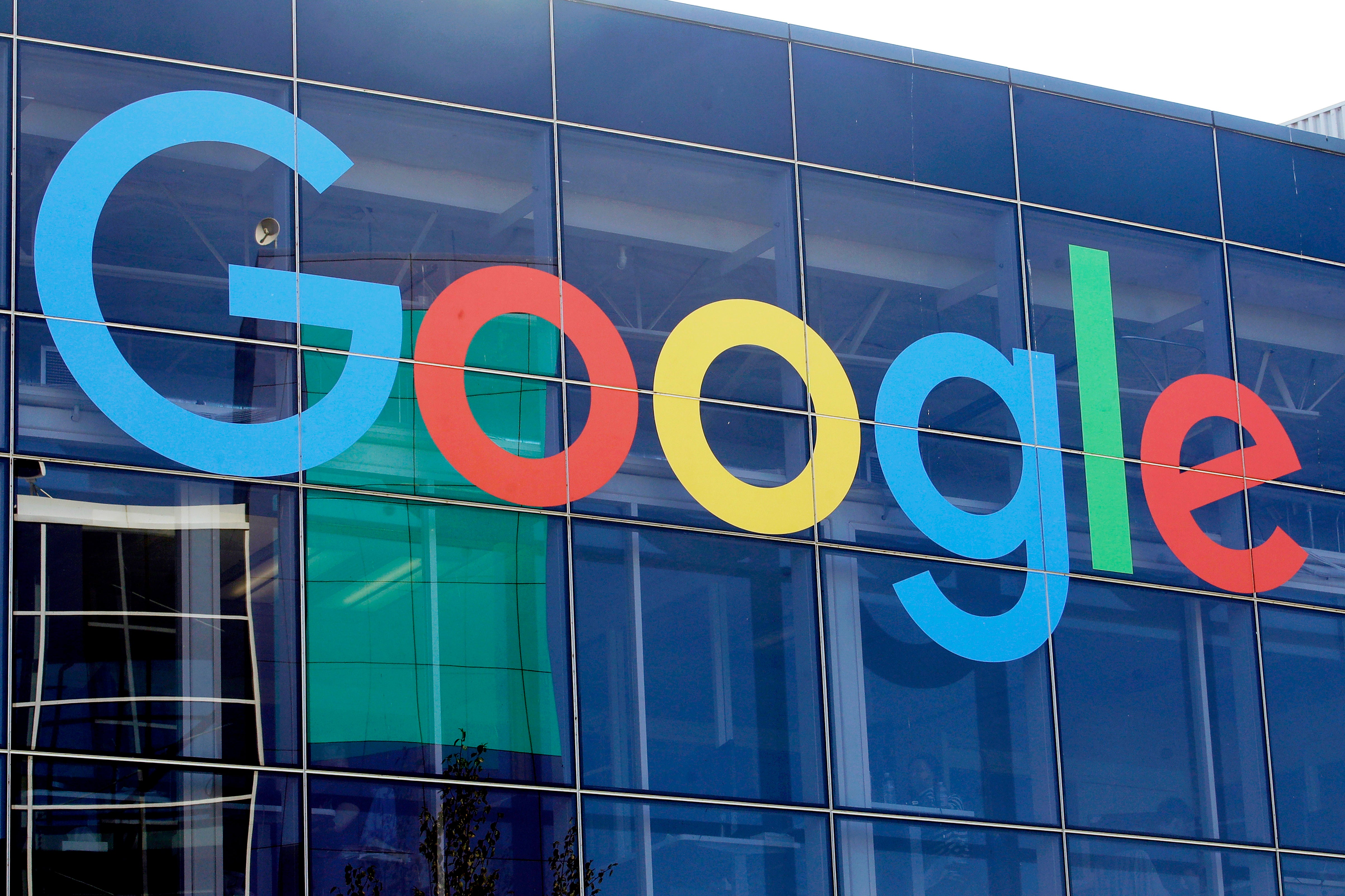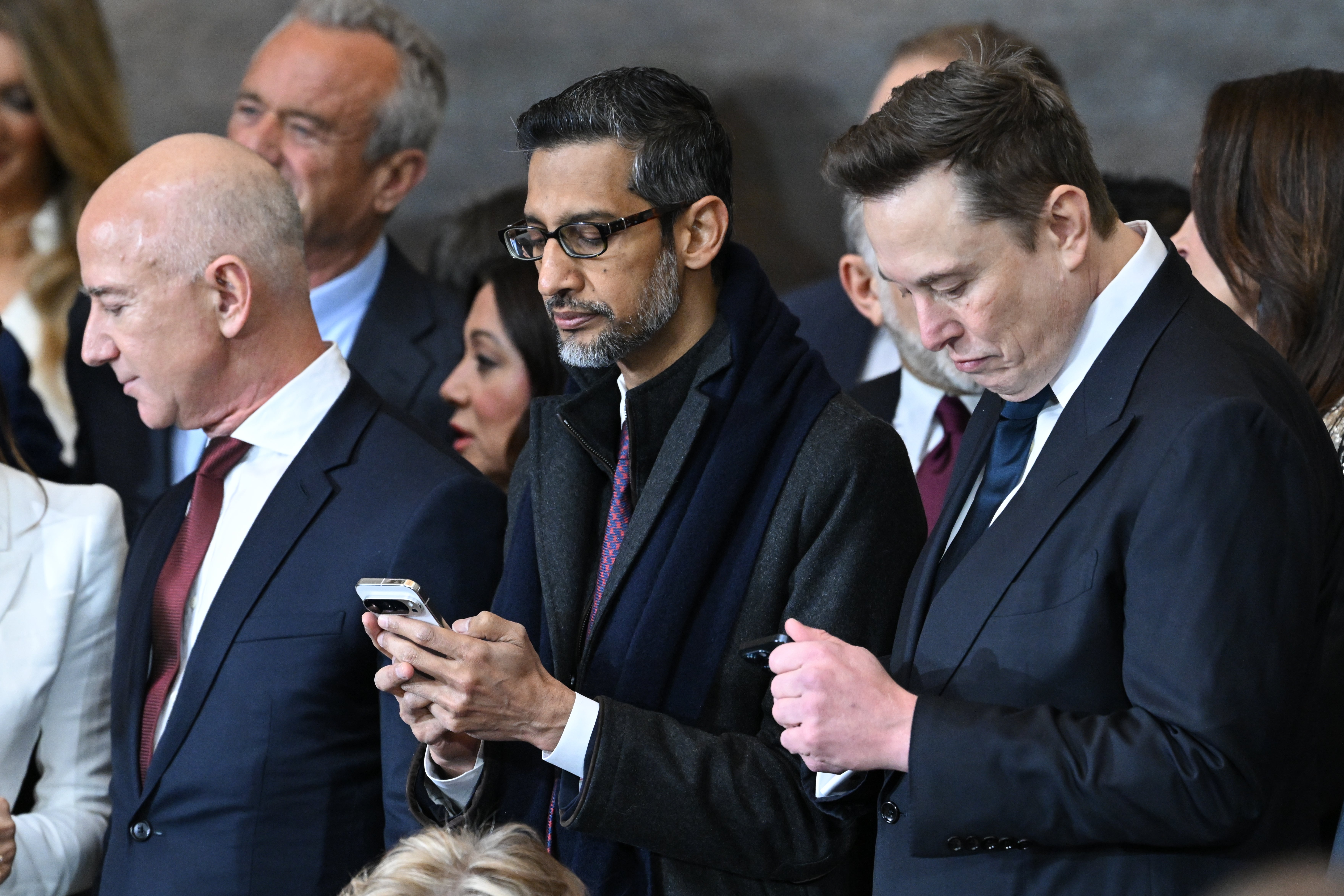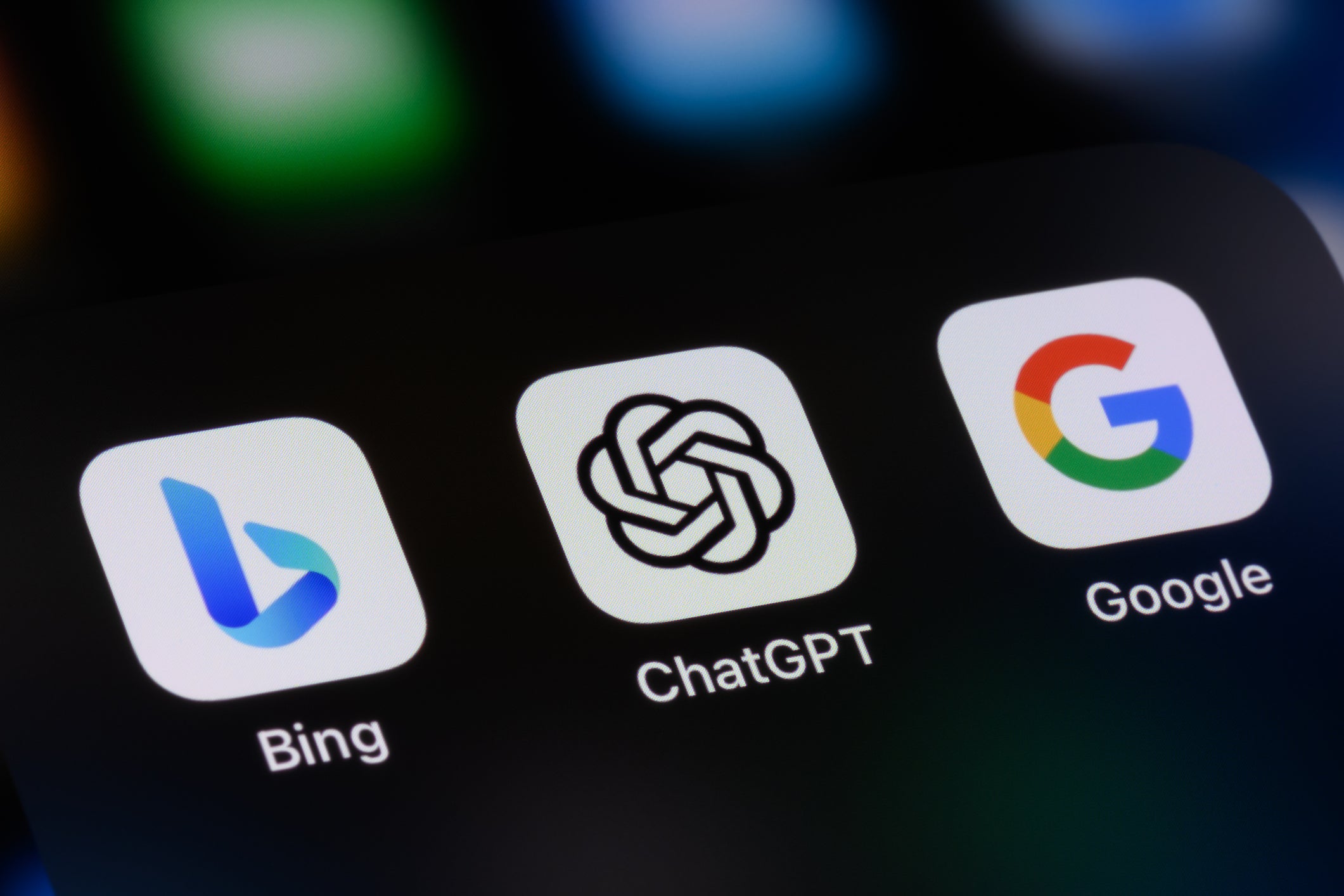Is 2025 the year that Google dies?
The search engine used to run rings around the competition, writes Chris Stokel Walker. But AI is changing all of that as we adopt new ways of thinking – and searching

For more than two decades, “google it” was shorthand for finding anything online – allowing Google, a tech company founded in 1998, to build a $2 trillion empire built on blue links. But the release of ChatGPT in November 2022 caused a seismic shift, the aftershocks of which are still being felt. Chat-based tools from OpenAI and an upstart called Perplexity deliver ready-made answers instead of a list of websites, enticing users and some big tech names to rethink which icon now sits on the home screen.
In fact, Perplexity has attracted so much interest from some of the biggest tech giants and could, if those deals come off, soon appear on the home screen of your smartphones at a scale that could propel it to be the next Google. Leading, even, to its downfall.
Behind the scenes, Google is racing to bolt its own generative AI onto search, a race it has been forced into since the release of ChatGPT panicked Google into releasing its own AI products, because they understand rivals’ distribution deals that could shift user habits overnight.
Early numbers already hint at a changing tide. Analysis by Bank of America suggests that global visits to Google are rapidly declining year-on-year, while visits to ChatGPT are up 160 per cent in the last 12 months. Separate research by Morgan Stanley suggests ChatGPT remains a top choice for Gen Zers and many of this generation hardly think about searching on Google at all.
While Google is slowly losing ground to other search engines, its loss of momentum to nimbler competitors that bake in AI to their systems is far quicker.
While ChatGPT is a mass market use of AI, the real contender to the throne is Perplexity, which is branding itself as the ultimate “answer engine”. Its AI-powered results to queries combine the best of the generative chatbots with more of the rigour expected from search platforms. Bank of America’s data indicates that traffic to Perplexity is up 233 per cent year-on-year – albeit from a small base. The predictions are that this will now rapidly expand.
Perplexity was founded in August 2022 by CEO Aravind Srinivas and three co-founders. Srinivas is a former OpenAI and DeepMind engineer who helped drive the release of its answer engine in December 2022. By February 2023, it gained two million users; by January 2024, it had 10 million monthly active users and was processing nearly 170 million queries a month. It’s currently raising funding at a valuation of around $14bn, according to reports.
And while Google’s scale currently dwarfs Perplexity – the search giant garnered 2.7 billion visits a day in March, compared to Perplexity’s mere four million – the tide is expected to start turning, and quickly. Lily Ray, a New York City-based search engine optimisation expert, says once a pattern of behaviour of using more explicitly AI-powered tools in place of traditional search engines takes hold, it’ll be challenging to undo. “I hear all the time people saying they don't even use Google anymore,” she says. “People are starting to use ChatGPT and Perplexity for everything.”

The tech sector is taking notice. Perplexity has managed to wow some of tech’s biggest companies, including those who have previously relied on Google to provide search services to their customers.
In its recent US antitrust trial, Apple executive Eddy Cue said the iPhone maker had begun talks with Perplexity to explore integrating the answer engine’s tools into their devices – a rare public admission of a potential tie-up from a company that keeps its partners sworn to secrecy until it unveils partnerships on its own terms. “We’ve been pretty impressed with what Perplexity has done, so we’ve started some discussions with them about what they’re doing,” Cue said.
Apple isn’t the only company interested in a partnership with Perplexity either. Also talking to them is Samsung, which sells around 224 million smartphones a year, and is one of the largest manufacturers of Android devices, which outnumber Apple products by a factor of three to one.
“If Apple and Samsung have a partnership with Perplexity that potentially pushes Google out as the default search engine, that’s a very big conversation, because that’s a very big source of traffic for Google,” says Ray. Combined, Apple and Samsung sell around half a billion smartphones a year.
.jpg)
Either deal – with Apple or Samsung – would be “enormous”, says Ray. “If Perplexity is truly integrated and Google is no longer used as the default search engine, that's devastating to Google,” she says. Neither Apple nor Google immediately responded to a request to comment for this story.
But, more broadly, the stakes couldn’t possibly be higher. “This feels more because these products are actually search engines,” Ray says. “People could feasibly switch to Perplexity and ChatGPT search for everything.”
Not everyone is quite as convinced about the likelihood of Google reaching terminal decline. “I’m not sure [Perplexity] will displace Google,” says Aleksandra Urman, a researcher at the University of Zurich who specialises in search engines. The reason is the format that Perplexity and its AI competitors present their outputs. “People say, ‘Okay, actually, when we want quick answers, we still prefer using search engines, because all the chatbots always ramble and provide us lengthy results,’” she says.

That is still the case: ask Perplexity a simple question and it’ll provide a response that gives you the correct answer within a six-word sentence (“The capital of Greece is Athens”), then goes on for another 160 words unnecessarily. Stick the same question into Google, and you’ll get a single word, writ large atop the search results.
But as AI and Language models develop, that is likely to develop too. However, beyond the unnecessary cruft that comes with the current overly verbose AI answers, another issue Urman foresees for Perplexity is happenstance adoption by users.
“It’ll be interesting to see what happens with Perplexity, because so far, they’ve been struggling a bit in this market,” she says. “They’re nowhere by default. You have to kind of find them as a user.” Of course, that could change with any tie-up with major smartphone manufacturers or other companies pushing Perplexity in front of hundreds of millions of users.

Add to this that those closest to search engines’ shifts feel that the quality of product pushed out by the market leader – Google – is declining fast. “It feels to me like they’re in panic mode and catch-up mode and just moving as quickly as possible with AI products,” says Ray. “They often launch AI products that aren’t 100 per cent ready, and then they just build off of that.”
It’s a playbook that we’ve seen before in tech. Nokia used to be a dominant force in the mobile phone world, then went the way of the tech dinosaurs as it floundered, and if you are old enough, you’ll remember when Ask Jeeves was a thing.
Ray says that Google, unlike Nokia, is at least making steps to try and retain its market position. But it will be a challenge. “They need to be the better large language model,” she says. “They need to provide the better experience to keep people on Google.”
And as AI gets better and more honed every day, the race for the future is already here, one in which we could find ourselves one day asking a bot: what happened to Google?


Join our commenting forum
Join thought-provoking conversations, follow other Independent readers and see their replies
Comments